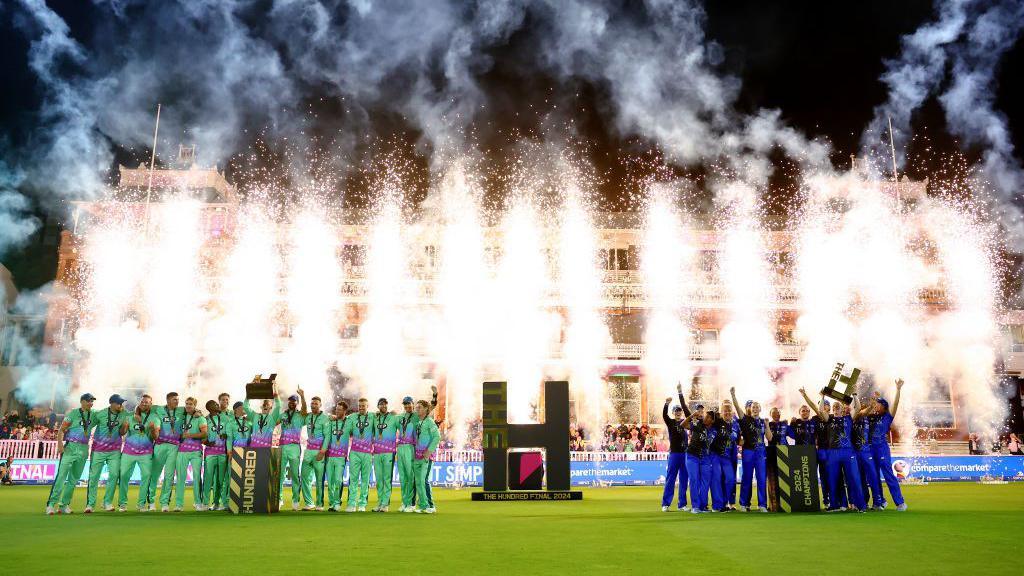The Hundred pay gap widens between top men and women

Female players will earn a maximum of £65,000 in 2025
- Published
The gap in pay between the top men's and women's players in The Hundred will widen from £75,000 to £135,000 from 2025.
Top level men's players will see their pay increase by 60% to £200,000, while leading women's salaries are rising 30% to £65,000.
The increases are part of an overall 25% rise across all salary bands.
In band seven - the lowest earning category - men will be paid £31,000, up from £30,000 in 2024, while women will earn £10,000, up from £8,000.
In 2023, the Independent Commission for Equity in Cricket recommended equal salaries in The Hundred by 2025.
The Hundred organisers say the increases are a "step forward".
"That we are now offering four times what we were able to offer in the first year of the women's competition is telling of the game's continued growth, and clearly not the end of our journey," said tournament director Rob Hillman.
The salary boost comes as the ECB sells stakes in all eight of The Hundred teams, with investors set to be in place for the 2025 season.
The Professional Cricketers' Association said there had been a lack of consultation about the new salaries, which it said would mean "negligible change" for all but the top players.
"The PCA and current players are extremely concerned at the disproportionate salary bands for The Hundred which will see very few men's professional cricketers in England and Wales benefit while the gap between the highest paid men's and women's players has widened," PCA interim chief executive Daryl Mitchell said.
Oval Invincibles captain Sam Billings is one player to criticise the new salaries, highlighting how the increase in the men's tournament is not shared among the different contract brackets.
"Remarkable how a category gets a 60% increase yet most others get under 5%... who has come up with this?" Billings said on X, external.
England bowler Tymal Mills, who has played for Southern Brave in each edition of The Hundred, reposted the PCA statement, adding, external: "Players in bands three downwards have largely carried and made the competition what it is today, ready to be sold and profited on.
"Yet, after tax, are essentially getting no salary improvement after four years. First world problems I know but worth pointing out."
- Published18 August 2024

- Published16 August
